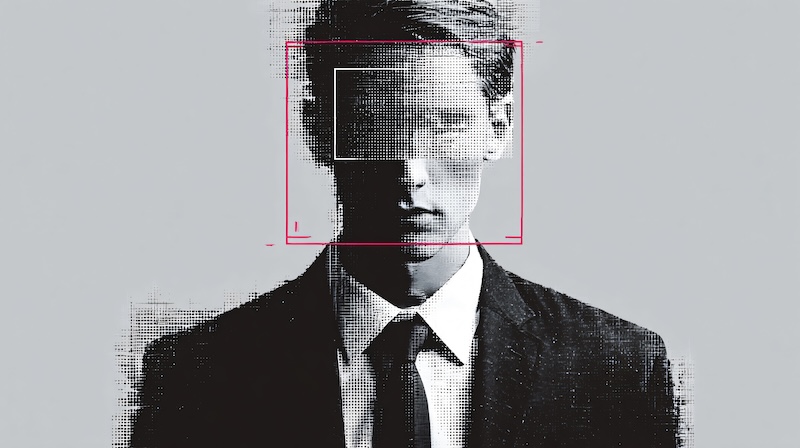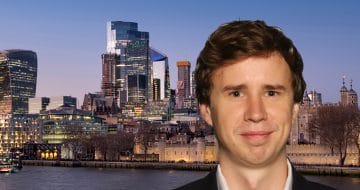As tech races ahead, Chris Whitehouse (of counsel at RPC) unpacks the challenges it poses for the legal profession

Chris Whitehouse — of counsel at RPC — discusses his journey from the lab to the courtroom, how AI is making frauds more sophisticated (and how lawyers fight back), and why analytical skills and tech-savvy will boost the next generation of lawyers.
When Chris Whitehouse first enrolled at Oxford to study physics, he didn’t imagine his career would lead him into some of the most complex civil fraud cases in the City. Yet today, as of counsel at RPC, he is at the forefront of disputes involving crypto-assets, AI-driven scams and high-stakes asset recovery. His route into law was, to many, unconventional, but Whitehouse highlights they’re more alike than people realise. “I think there’s a commonality between physics and the law: both are about understanding how things work and analysing situations,” he reflects. What law offered that science didn’t, however, was competition. “I was very attracted by the idea of crafting arguments and having a competitive element where how good you are directly impacts your probability of winning.” That blend of analytical rigour and adversarial thrill lured him from the laboratory to litigation.

Whether through calculating damages, spotting patterns in disclosure data, or running probabilities on settlement options, his scientific brain has become a powerful asset in his practice. He even applied game theory to litigation strategy. “I wrote a number of articles about the application of game theory to settlement. I thought about it that way because I have a mathematical background,” he says. In his view, a legal team without someone who can “think like a quant” risks missing out on routes to success. Now a senior figure in RPC’s disputes team, Whitehouse has carved out a niche in disputes — particularly in cases with a technological twist.
In 2018, as cryptocurrency hit the mainstream, Whitehouse and his colleagues watched with interest as the law had to grapple with the unique characteristics of cryptocurrency, “Crypto sort of burst onto the legal scene and the issues it gives rise to are fascinating,” he recalls. Sensing a gap, he helped launch the Crypto Fraud and Asset Recovery Network (CFAAR) in 2021, bringing together lawyers from across the City to share knowledge and best practice. Much to Whitehouse’s surprise, its launch party drew a queue “literally out of the door”. Since then, it has grown into a global network, and recently contributed to the Law Commission’s consultation on crypto disputes.
London has emerged as a hub for these cases, largely thanks to the flexibility of the courts. Far from being technophobic, the English judiciary has embraced expert evidence and interpreted existing law to include crypto-assets within the definition of property, allowing fraud victims to seek freezing orders of stolen assets worldwide. “There is one judge in particular, His Honour Judge Pelling, who has tried more crypto cases than any other,” Whitehouse points out.
While it may be obvious that a company has been defrauded — if millions of pounds suddenly vanish from their bank account — the real challenge lies in identifying the perpetrator and tracing the assets. Fraudsters often hide behind anonymity, moving funds through a maze of crypto-wallets. Lawyers instruct experts to follow the money using blockchain analysis, tracking transfers until the thieves attempt to convert crypto into cash. At that stage, court orders compel crypto exchanges to provide information, revealing whatever details they hold about account holders or the transaction trail. It is a high-tech game of cat and mouse, and one in which English fraud practitioners have become increasingly adept.
Fraud has also grown more sophisticated with the advent of AI. Scammers can now use large language models to craft flawless messages tailored to each victim, scraping company websites and LinkedIn to find details about them and make communications almost indistinguishable from legitimate correspondence. “If you received an email addressed to you that had a nod to your role, you might be far more likely to click the link – and that’s something AI can do,” Whitehouse warns. More alarmingly, deepfake technology allows criminals to impersonate high-ranking executives on video calls, deceiving staff into transferring millions on their command. “If it looks like them and sounds like them, then they’re in – and that will dupe many, many people,” he says. While tools exist to detect AI-generated content — from analysing eye movement to subtle skin tone changes — Whitehouse points out that “most frauds are not that sophisticated because the simple ones work,” relying on human vulnerability to succeed.
AI is also transforming legal practice itself. At RPC, Whitehouse has been experimenting with and helping audit the firm’s in-house AI chatbot, assisting lawyers to draft documents, brainstorm arguments or check for consistency safely. Disclosure is also being revolutionised. AI tools can perform a first level relevance review across thousands of documents, cutting costs and speeding up litigation. “Is it perfect? No. But is it roughly to the standard of a level one document review paralegal? Honestly, yes,” Whitehouse notes. This raises questions for junior lawyers, traditionally tasked with routine work. Yet Whitehouse is optimistic. He draws an analogy with Excel: once feared as the end of accountancy, it ultimately made the profession far more rewarding by scrapping many of the time-intensive humdrum tasks. AI, he suggests, could do the same for law, giving junior lawyers more interesting and substantive work much earlier. Crucially, AI cannot replace judgment. “Something that’s roughly right isn’t really good enough” in law, Whitehouse insists. Human oversight, nuance and risk assessment remain indispensable.
Looking ahead, Whitehouse emphasises the increasing importance of tech fluency in legal practice. Lawyers who understand both the law and the technologies shaping fraud and corporate operations — from AI to blockchain — will be best placed to navigate the complex cases of the future. He encourages students and junior lawyers, particularly those from unconventional backgrounds, to embrace their unique skills, stay commercially aware, and engage with the technologies transforming their profession. For Whitehouse, combining analytical ability with curiosity about how things work is no longer just an advantage — it is essential.
Chris Whitehouse will speaking at ‘AI, fraud, and the future of law — with RPC’, a virtual student event taking place on Wednesday 1 October, from 4pm to 6pm. Secure your place.
About Legal Cheek Careers posts.


